
Find Help
More Items From Ergsy search
-

Are there any long-term effects of gonorrhoea?
Relevance: 100%
-

What is Gonorrhoea?
Relevance: 61%
-

Is there a vaccine for gonorrhoea?
Relevance: 60%
-

The symptoms of gonorrhoea
Relevance: 56%
-
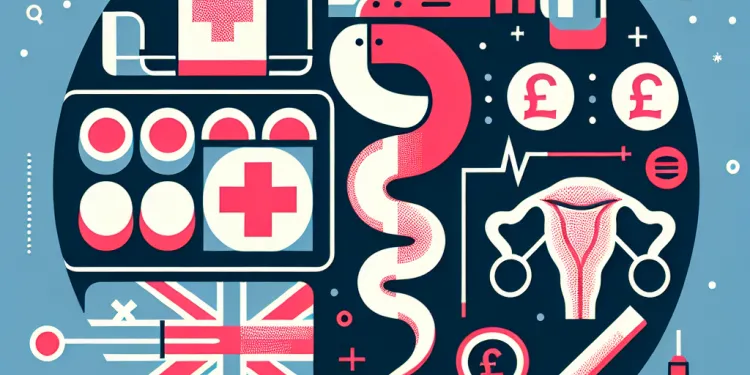
Can gonorrhoea be asymptomatic?
Relevance: 56%
-

Can gonorrhoea be prevented?
Relevance: 56%
-

How is gonorrhoea transmitted?
Relevance: 54%
-

How is gonorrhoea diagnosed?
Relevance: 54%
-

What should one do if they suspect they have gonorrhoea?
Relevance: 53%
-

What antibiotics are used to treat gonorrhoea?
Relevance: 52%
-

Understanding Your Sexual Health - Gonorrhoea
Relevance: 50%
-
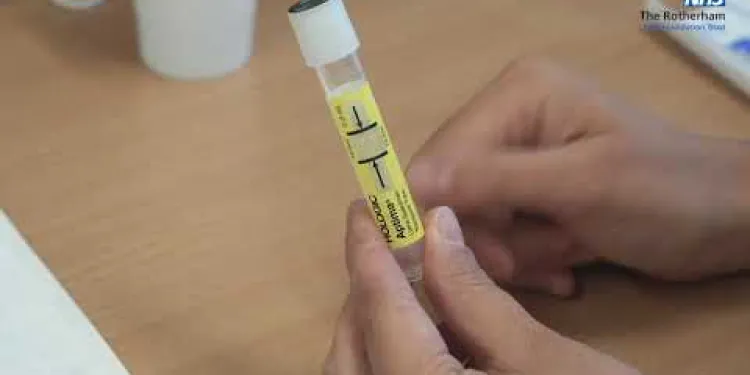
Urine test for Gonorrhoea and Chlamydia
Relevance: 50%
-

Urine test for Gonorrhoea and Chlamydia
Relevance: 50%
-
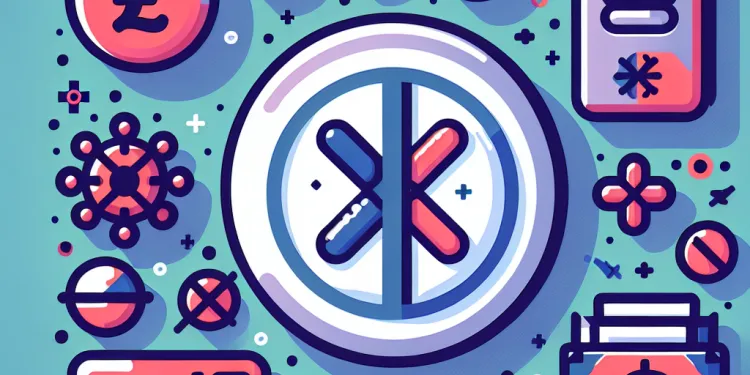
Why is antibiotic resistance a concern with gonorrhoea?
Relevance: 50%
-

What are the long-term effects of sunburn?
Relevance: 49%
-
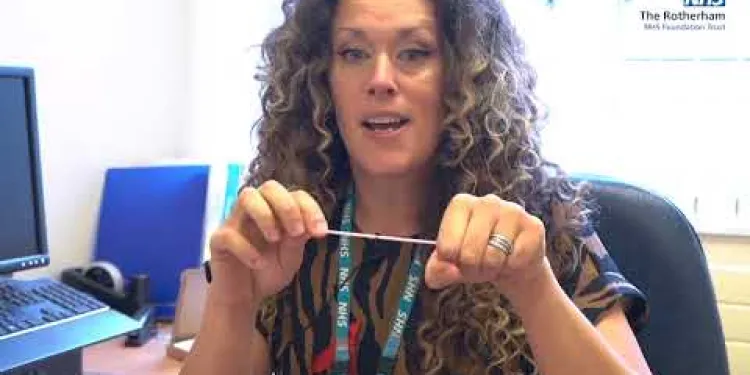
Rectal swab test for Gonorrhoea and Chlamydia
Relevance: 49%
-

Pharyngeal swab for Gonorrhoea and Chlamydia
Relevance: 49%
-

Does ketamine have long-term effects?
Relevance: 48%
-

Vaginal Swab test for Gonorrhoea and Chlamydia
Relevance: 48%
-

Are there any long-term effects of Chikungunya infection?
Relevance: 48%
-

Are there any long-term effects of using Botox?
Relevance: 48%
-

Are there any long-term effects of using Ozempic?
Relevance: 48%
-

Can whiplash have long-term effects?
Relevance: 47%
-

Can you still get gonorrhoea after treatment?
Relevance: 47%
-

Can gonorrhoea infect areas other than the genital organs?
Relevance: 47%
-
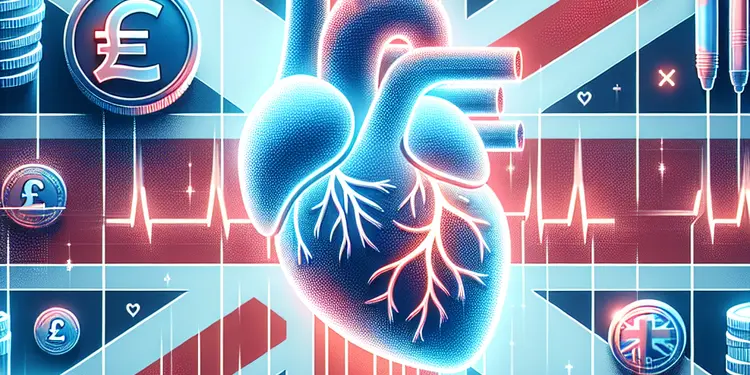
What are the long-term effects of a heart attack?
Relevance: 46%
-

Are there any long-term side effects of the COVID jab?
Relevance: 46%
-
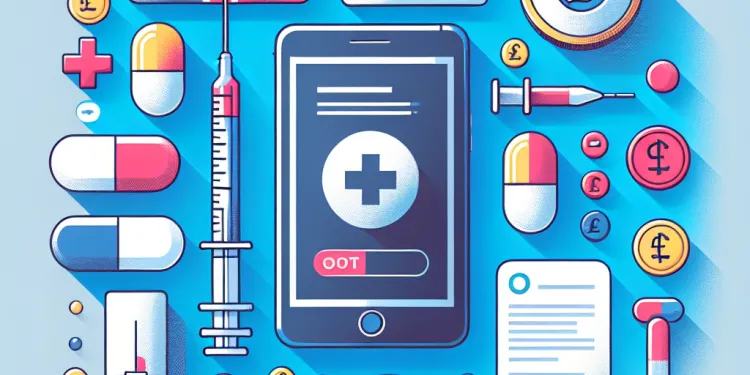
How often should one get tested for gonorrhoea?
Relevance: 46%
-
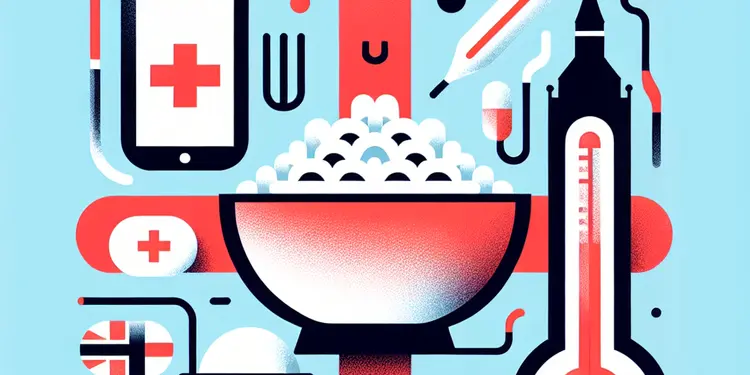
Are there any long-term effects of rice food poisoning?
Relevance: 44%
-
What are the long-term effects of untreated eating disorders?
Relevance: 44%
-

Can drink spiking cause long-term health effects?
Relevance: 42%
-

What are the long-term effects of repeated heatwave exposure?
Relevance: 42%
-
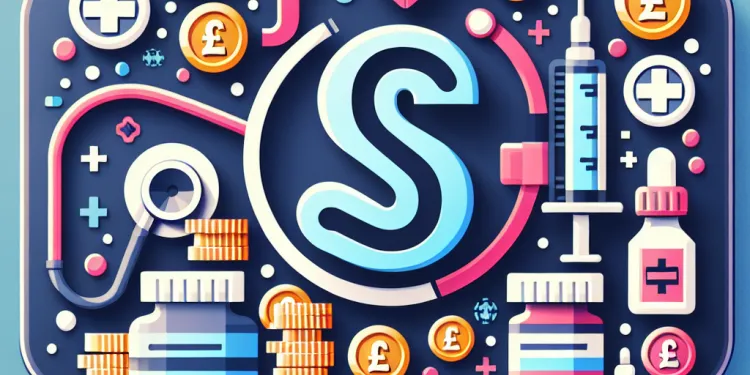
Is gonorrhoea treatable?
Relevance: 41%
-
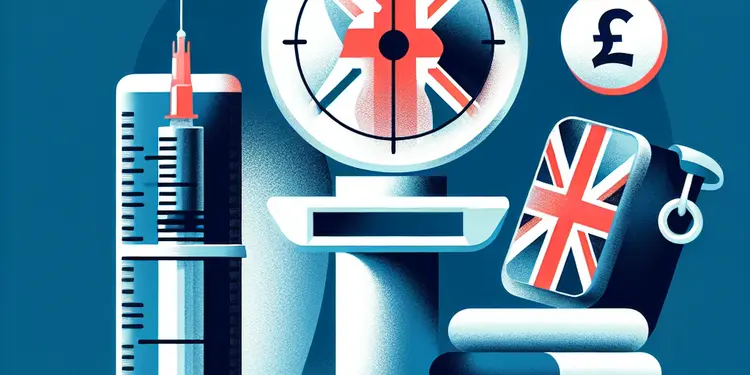
Are there any side effects from long-term use of weight loss jabs?
Relevance: 39%
-
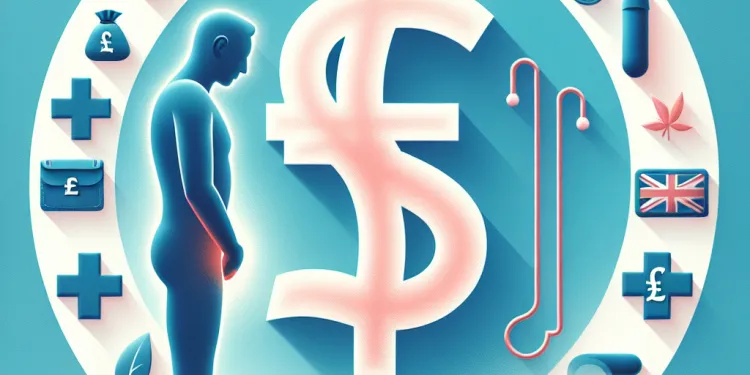
Can gonorrhoea cause complications if left untreated?
Relevance: 36%
-
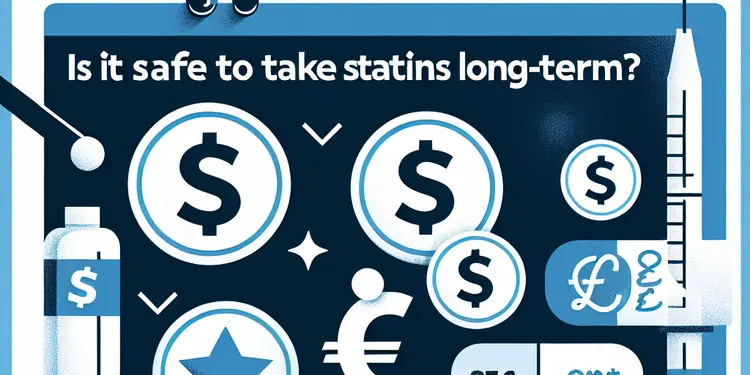
Is it safe to take statins long-term?
Relevance: 33%
-

Can meningitis cause long-term complications?
Relevance: 33%
-

Is postnatal depression a long-term condition?
Relevance: 33%
-
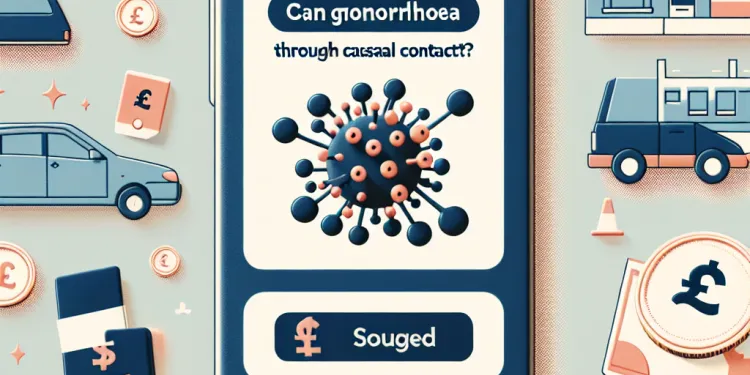
Can gonorrhoea be spread through casual contact?
Relevance: 33%
-

Does coffee consumption have any long-term heart health effects?
Relevance: 32%
Overview of Gonorrhoea
Gonorrhoea is a sexually transmitted infection (STI) caused by the bacterium Neisseria gonorrhoeae. It primarily affects the mucous membranes of the reproductive tract, but it can also infect the mouth, throat, eyes, and rectum. While gonorrhoea is a common infection, it is crucial to understand its potential long-term effects, especially if left untreated.
Immediate Health Implications
In the short term, gonorrhoea can cause a range of symptoms, including a burning sensation during urination, increased vaginal or penile discharge, and, in some cases, painful or swollen testicles. However, symptoms might not always be noticeable, particularly in women, which can lead to complications due to delayed treatment.
Long-term Effects in Women
If gonorrhoea is not treated promptly, it can lead to serious long-term health issues, particularly for women. One of the most significant complications is Pelvic Inflammatory Disease (PID). PID is an infection of the female reproductive organs and can cause severe and chronic pelvic pain. It can also result in the formation of scar tissue in the fallopian tubes, potentially leading to infertility or increasing the risk of ectopic pregnancy.
In addition to PID, untreated gonorrhoea can also increase the risk of other sexually transmitted infections, including HIV. This heightened susceptibility is due to the inflammation of the genital tissues, making them more vulnerable to viruses.
Long-term Effects in Men
For men, untreated gonorrhoea can lead to epididymitis, an inflammation of the epididymis, which is the tube that carries sperm. This condition can result in severe pain and may lead to infertility if not properly treated. Another potential long-term effect is urethral stricture, a narrowing of the urethra caused by scar tissue, leading to difficulties with urination.
Effects Beyond the Reproductive System
Regardless of gender, gonorrhoea can have systemic effects if the infection spreads to the bloodstream, leading to disseminated gonococcal infection (DGI). DGI is a serious condition characterized by arthritis, tenosynovitis, and skin lesions, demanding immediate medical intervention.
Prevention and Treatment
Preventing the long-term effects of gonorrhoea is best achieved through early detection and treatment. Regular STI screenings, safe sex practices such as using condoms, and engaging in sexual health education can reduce the risk of gonorrhoea and other STIs. In the UK, treatment typically involves a course of antibiotics, which can effectively cure the infection and prevent complications, provided it is administered promptly.
Conclusion
Awareness and understanding of the long-term effects of gonorrhoea are essential for prompting timely healthcare intervention. With vigilant practice of preventive measures and seeking treatment at the first indication of infection, the negative consequences of gonorrhoea can be significantly minimized, ensuring better overall sexual health within the community.
What is Gonorrhoea?
Gonorrhoea is a type of infection you can get from having sex. It is caused by tiny germs called bacteria. Gonorrhoea can infect parts of your body like the private areas, mouth, throat, eyes, and bottom. Many people get this infection, so it is important to know what can happen if it is not treated.
What Happens Right Away?
If you have gonorrhoea, you might feel pain when you pee or see more fluid coming from private parts. Men might have painful or swollen private parts. Sometimes, you might not notice any signs, especially if you are a woman. This can be bad because you might not get treated in time.
What Happens to Women if Not Treated?
If women do not treat gonorrhoea, it can cause big health problems. One problem is something called Pelvic Inflammatory Disease (PID). PID can make your lower belly hurt a lot and may make it hard to have babies later. It can also cause pregnancy problems.
If gonorrhoea isn’t treated, it might make it easier to catch other infections, like HIV. This happens because the infection makes those areas more open to other germs.
What Happens to Men if Not Treated?
For men, not treating gonorrhoea can make a part that carries sperm (called the epididymis) swell and hurt. This can stop them from having babies later. It can also make peeing hard because it can cause scar tissue in the pee tube (called the urethra).
Other Problems Gonorrhoea Can Cause
No matter if you are a boy or a girl, gonorrhoea can make you very sick if it gets into your blood. This can cause joint pain, skin spots, and needs quick doctor care.
How Can You Stay Safe and Get Better?
To stop gonorrhoea from causing big problems, find it early and get treated. Go to the doctor for checks, use condoms when having sex, and learn about staying healthy. In the UK, doctors can give you medicine called antibiotics to make you better if you have gonorrhoea.
Final Thoughts
Knowing what gonorrhoea can do helps you get help fast. By being careful and getting treatment if you notice signs, you can stay healthy. This is important for everyone’s health.
Frequently Asked Questions
What are the long-term effects of untreated gonorrhea?
Untreated gonorrhea can lead to serious health issues, including pelvic inflammatory disease (PID) in women, which can cause infertility, ectopic pregnancy, and chronic pelvic pain. In men, it can cause epididymitis, leading to infertility.
Can gonorrhea cause infertility?
Yes, gonorrhea can cause infertility in both men and women if left untreated. In women, it can lead to pelvic inflammatory disease (PID), which can damage the fallopian tubes. In men, it can lead to epididymitis, which can affect sperm production.
Does gonorrhea affect pregnancy?
Yes, untreated gonorrhea can lead to complications during pregnancy, including an increased risk of miscarriage, premature birth, and infection of the baby during delivery.
Can gonorrhea cause chronic pelvic pain?
Yes, if left untreated, gonorrhea can lead to pelvic inflammatory disease (PID), which can cause chronic pelvic pain in women.
What impact does gonorrhea have on the reproductive system?
Gonorrhea can severely impact the reproductive system by causing PID in women and epididymitis in men, both of which can lead to infertility.
Can gonorrhea lead to ectopic pregnancy?
Yes, if gonorrhea causes damage to the fallopian tubes through PID, it can increase the risk of ectopic pregnancy, where a fertilized egg implants outside the uterus.
How can gonorrhea affect newborns if untreated during pregnancy?
If a mother has untreated gonorrhea during pregnancy, it can be passed to the baby during delivery, potentially causing blindness, joint infection, or a life-threatening blood infection in the newborn.
Can long-term gonorrhea affect other parts of the body?
Yes, untreated gonorrhea can spread to other parts of the body, causing conditions like disseminated gonococcal infection (DGI), which can affect the joints, skin, and heart.
What is disseminated gonococcal infection?
Disseminated gonococcal infection (DGI) is a severe complication of untreated gonorrhea where the infection spreads to the bloodstream and causes joint pain, fever, and skin lesions.
Can gonorrhea cause joint problems?
Yes, in cases of disseminated gonococcal infection, the bacteria can affect the joints, leading to arthritis-like symptoms.
How does gonorrhea affect the cervix?
Gonorrhea primarily affects the cervix in women, causing inflammation and infection, which can lead to further complications if not treated.
Is there a link between gonorrhea and increased risk of HIV?
Yes, having gonorrhea can increase a person's susceptibility to contracting HIV if exposed because the inflammation caused by the infection can provide an easier pathway for the virus.
Can gonorrhea cause systemic infections?
Yes, if untreated, gonorrhea can spread throughout the body and cause systemic infections such as bloodstream infections (sepsis) and other related conditions.
Does gonorrhea have any long-term effects on men specifically?
In men, untreated gonorrhea can lead to epididymitis, which can cause pain, fever, and in some cases, infertility due to damage to the reproductive organs.
What is one potential complication of untreated gonorrhea in women?
One major complication of untreated gonorrhea in women is pelvic inflammatory disease (PID), which can lead to infertility and chronic pelvic pain.
How frequently does untreated gonorrhea lead to long-term complications?
The risk of long-term complications varies, but untreated gonorrhea frequently leads to complications such as PID in women and epididymitis in men.
Are there psychological effects from the long-term consequences of gonorrhea?
Yes, the long-term effects of gonorrhea like infertility and chronic pain can have significant psychological impacts, including stress, anxiety, and depression.
Can untreated gonorrhea result in life-threatening conditions?
Yes, if gonorrhea progresses to disseminated gonococcal infection (DGI), it can lead to life-threatening conditions like sepsis, if not treated promptly.
How can untreated gonorrhea affect the immune system?
Chronic infection from untreated gonorrhea can weaken the immune system by creating perpetual inflammation and providing an entry point for other infections, including HIV.
Why is prompt treatment of gonorrhea important?
Prompt treatment of gonorrhea is vital to prevent the development of serious long-term health issues such as infertility, pelvic inflammatory disease, and complications associated with disseminated gonococcal infection.
What happens if you don't treat gonorrhea for a long time?
If gonorrhea is not treated, it can cause big health problems. For women, it can lead to something called pelvic inflammatory disease (PID). PID can make it hard to have babies, cause pregnancy problems, and give belly pain that doesn't go away. For men, untreated gonorrhea can cause a problem called epididymitis, which can also make it hard to have babies.
Can gonorrhea stop people from having babies?
Gonorrhea is an illness you can catch from another person. If you don't get medicine for it, it can make it hard to have babies later.
If you think you might have gonorrhea, tell a doctor so they can help you. Medicine can make it better.
Talking to a nurse or using websites with information for kids can help too.
Yes, gonorrhea can make it hard to have babies if it is not treated. In women, it can cause a problem called pelvic inflammatory disease (PID). This can hurt the tubes where eggs travel. In men, it can cause a problem called epididymitis, which can change how sperm is made.
Can gonorrhea affect having a baby?
Gonorrhea is an illness. It can make it harder to have a healthy baby. Moms with gonorrhea might pass it to their babies. This can make the babies sick.
If you think you have gonorrhea, see a doctor. They can help you stay healthy. They give medicine that can help you and your baby.
Talking to a doctor early is good. You can ask your family or friends to go with you. Also, you can write notes to remember what to ask.
Yes, if gonorrhea is not treated, it can cause problems when you are pregnant. It can make you more likely to lose the baby, have the baby too early, or pass the infection to the baby when the baby is born.
Can gonorrhea make your belly hurt a lot for a long time?
Yes, if you don’t treat gonorrhea, it can cause another sickness called pelvic inflammatory disease (PID). This can make your belly hurt for a long time.
How does gonorrhea affect the body's reproduction system?
Gonorrhea is a sickness you can catch from others. It can make it hard for your body to have babies later. It can hurt girls’ and boys’ bodies in the parts that help make babies.
If you have questions about gonorrhea, talk to a doctor. They can help and give medicine to feel better.
Gonorrhea can hurt the parts of the body used to make babies. In women, it can cause a problem called PID. In men, it can cause epididymitis. These problems can make it hard or even impossible to have children.
Can gonorrhea cause a baby to grow outside the womb?
Yes, if gonorrhea harms the fallopian tubes, it can lead to PID. PID can make it more likely to have a pregnancy where the baby grows outside the womb. This is called an ectopic pregnancy.
If you find it hard to read, tools like text-to-speech can read it for you. Highlighters can help pick out important words. Ask someone you trust to help if you need more support.
What happens to a baby if the mother has gonorrhea and doesn't get treatment?
If a mom has gonorrhea and doesn't get help from a doctor, the baby can get sick too. The baby might have problems with their eyes or skin when they are born. It's important for the mom to see a doctor so the baby stays healthy.
Here are some things that can help: - Ask a doctor for help if you have gonorrhea. - Go for regular check-ups when you are pregnant. - Tell the doctor about any worries or problems.
If a mom has gonorrhea (a kind of sickness) and doesn't get medicine while she's pregnant, she can give it to her baby when the baby is born. This can make the baby very sick. The baby might have problems seeing, get sore bones, or have a really bad blood sickness.
It's important for moms to get check-ups with the doctor. The doctor can help keep the mom and baby healthy. Using tools like magnifying glasses or audio books can help people understand health information better.
Can having gonorrhea for a long time hurt other parts of the body?
Gonorrhea is an illness you can catch from someone else. If it is not treated, it might cause problems in different parts of the body. It is important to see a doctor who can help. They might give you medicine to feel better.
Here are some ways to learn more:
- Ask a doctor or nurse to explain it to you.
- Look at pictures or videos about gonorrhea.
- Use apps or websites that make learning easier.
Yes, if gonorrhea is not treated, it can move to other parts of the body. This can cause problems like a sickness called DGI. DGI can hurt your joints, skin, and heart.
What is disseminated gonococcal infection?
Disseminated gonococcal infection is when a bad germ called gonococcus spreads in the body. It can cause red and painful joints, or spots on the skin. It is important to see a doctor if you feel sick. They can help you get better.
To understand more, you can:
- Ask someone to explain it to you.
- Use pictures to learn.
- Watch videos about health.
Disseminated gonococcal infection (DGI) is a big problem that can happen if you don't treat gonorrhea. It means the germ spreads through your blood and makes your joints hurt, gives you a fever, and causes spots on your skin.
If reading is hard, you can use tools that read text out loud or highlight words as you read.
Can gonorrhea make your joints hurt?
Yes, sometimes the bacteria from gonorrhea can spread to the joints. This can make the joints hurt like arthritis does.
How does gonorrhea affect the cervix?
Gonorrhea is a germ that can make you sick. It can hurt a part of the body called the "cervix." The cervix is inside a woman's body, and it helps babies stay safe in the tummy.
When gonorrhea gets in the cervix, it can make it hurt or feel bad. It might also make it hard to have a baby later. If you think you have gonorrhea, talk to a doctor. They can help you feel better.
Here are some things that can help:
- Go to the doctor and get checked.
- Take medicine the doctor gives you.
- Ask questions if you don't understand.
Gonorrhea is a sickness that can hurt the cervix in women. The cervix is a part of the body inside. This sickness can make the cervix swollen and sick. If someone does not get medicine to help, it can cause more problems later.
Can having gonorrhea make it easier to get HIV?
Gonorrhea is an illness you can get from sex. It can make you sick.
HIV is another illness you can get from sex. It makes it hard for your body to fight germs.
If you have gonorrhea, it might be easier to get HIV.
Doctors can help you with these illnesses. Always use a condom when you have sex. This can help you stay safe.
There are apps and websites that can help you understand more. Ask someone you trust to help you find them.
Yes, having gonorrhea can make it easier for someone to get HIV. This is because gonorrhea causes swelling, which can help HIV enter the body.
Here are some ways to protect yourself:
- Use condoms during sex.
- Get tested regularly for infections.
- Talk to a doctor for more advice.
Can gonorrhea make you sick in other parts of the body?
Yes, if you do not treat gonorrhea, it can move through your body. It can cause infections in your blood and other serious health problems.
Can gonorrhea cause long-term problems for men?
Gonorrhea is a disease. It can make men sick if they do not see a doctor. If men do not get help, it can make their bodies hurt for a long time.
Here are some tools or tips to help understand:
- Ask a doctor questions if you are worried.
- Look at pictures or videos that explain things.
- Use apps or websites that read texts out loud.
If gonorrhea in men is not treated, it can cause a problem called epididymitis. This can make a man feel pain and have a fever. Sometimes, it can also make it hard for a man to have babies because it can damage the parts of the body that help make babies.
To help understand, you can use pictures or talk with a doctor. It's good to have someone you trust help explain big words.
What can happen if a woman does not treat gonorrhea?
If a woman has gonorrhea and doesn't get it treated, it can make her very sick. It can hurt her belly and make it hard for her to have babies later. If you need help understanding, you can ask someone or use picture cards to explain.
If gonorrhea in women is not treated, it can cause a big problem called pelvic inflammatory disease (PID). This can make it hard for women to have babies in the future and can cause pain in the lower belly that lasts a long time.
How often does gonorrhea cause problems if not treated?
Gonorrhea is a sickness you can get from another person.
If you don't get medicine for gonorrhea, it can cause problems later.
These problems don’t happen to everyone, but they can make you feel unwell.
It's good to see a doctor and take medicine if you have gonorrhea.
Here are some things you can do to help:
- Doctors can give you medicine to get better.
- Tell a trusted adult if you feel worried or unwell.
If gonorrhea is not treated, it can cause problems later on. Women might get a problem called PID, and men might get a problem called epididymitis.
Can having gonorrhea for a long time affect your feelings or mind?
Gonorrhea is an illness you can catch.
If you have it for a long time, it might make you feel sad or worried.
Talking to a doctor or a counselor can help you feel better.
It's important to get help and talk to someone you trust.
Yes, having gonorrhea for a long time can lead to problems like not being able to have children and having pain that does not go away. This can also make people feel worried, stressed, or sad.
Can gonorrhea make you very sick if not treated?
Yes, gonorrhea can become very serious if it spreads through the body. This is called disseminated gonococcal infection (DGI). If not treated quickly, it can cause dangerous problems like sepsis, which can be life-threatening.
What happens to your immune system if you don't treat gonorrhea?
If you don't treat gonorrhea, it can make you sick for a long time. This can make your body's defense system weak. It can also make it easier for other sicknesses, like HIV, to get into your body.
Why is quick treatment for gonorrhea important?
Getting treated fast for gonorrhea is important. Gonorrhea is a sickness you can catch from someone else. If you do not get medicine right away, it can make you very sick later. You can also give it to other people.
Here are some things that can help you understand better:
- Ask a doctor or nurse to explain slowly and use simple words.
- Use pictures or videos to learn more about it.
- Write down questions you have and ask someone to help answer them.
- Use tools like read-aloud apps that can read the text to you.
It is very important to treat gonorrhea quickly. If you don't, it can lead to big health problems. These problems can include not being able to have babies, a bad infection in the belly, and other serious health issues.
If you need help to read this, try using an app that reads out loud, like a text-to-speech tool.
Useful Links
Have you found an error, or do you have a link or some information you would like to share? Please let us know using the form below.
-->
This website offers general information and is not a substitute for professional advice.
Always seek guidance from qualified professionals.
If you have any medical concerns or need urgent help, contact a healthcare professional or emergency services immediately.
Some of this content was generated with AI assistance. We’ve done our best to keep it accurate, helpful, and human-friendly.
- Ergsy carfully checks the information in the videos we provide here.
- Videos shown by Youtube after a video has completed, have NOT been reviewed by ERGSY.
- To view, click the arrow in centre of video.
- Most of the videos you find here will have subtitles and/or closed captions available.
- You may need to turn these on, and choose your preferred language.
- Go to the video you'd like to watch.
- If closed captions (CC) are available, settings will be visible on the bottom right of the video player.
- To turn on Captions, click settings .
- To turn off Captions, click settings again.
More Items From Ergsy search
-

Are there any long-term effects of gonorrhoea?
Relevance: 100%
-

What is Gonorrhoea?
Relevance: 61%
-

Is there a vaccine for gonorrhoea?
Relevance: 60%
-

The symptoms of gonorrhoea
Relevance: 56%
-

Can gonorrhoea be asymptomatic?
Relevance: 56%
-

Can gonorrhoea be prevented?
Relevance: 56%
-

How is gonorrhoea transmitted?
Relevance: 54%
-

How is gonorrhoea diagnosed?
Relevance: 54%
-

What should one do if they suspect they have gonorrhoea?
Relevance: 53%
-

What antibiotics are used to treat gonorrhoea?
Relevance: 52%
-

Understanding Your Sexual Health - Gonorrhoea
Relevance: 50%
-

Urine test for Gonorrhoea and Chlamydia
Relevance: 50%
-

Urine test for Gonorrhoea and Chlamydia
Relevance: 50%
-

Why is antibiotic resistance a concern with gonorrhoea?
Relevance: 50%
-

What are the long-term effects of sunburn?
Relevance: 49%
-

Rectal swab test for Gonorrhoea and Chlamydia
Relevance: 49%
-

Pharyngeal swab for Gonorrhoea and Chlamydia
Relevance: 49%
-

Does ketamine have long-term effects?
Relevance: 48%
-

Vaginal Swab test for Gonorrhoea and Chlamydia
Relevance: 48%
-

Are there any long-term effects of Chikungunya infection?
Relevance: 48%
-

Are there any long-term effects of using Botox?
Relevance: 48%
-

Are there any long-term effects of using Ozempic?
Relevance: 48%
-

Can whiplash have long-term effects?
Relevance: 47%
-

Can you still get gonorrhoea after treatment?
Relevance: 47%
-

Can gonorrhoea infect areas other than the genital organs?
Relevance: 47%
-

What are the long-term effects of a heart attack?
Relevance: 46%
-

Are there any long-term side effects of the COVID jab?
Relevance: 46%
-

How often should one get tested for gonorrhoea?
Relevance: 46%
-

Are there any long-term effects of rice food poisoning?
Relevance: 44%
-
What are the long-term effects of untreated eating disorders?
Relevance: 44%
-

Can drink spiking cause long-term health effects?
Relevance: 42%
-

What are the long-term effects of repeated heatwave exposure?
Relevance: 42%
-

Is gonorrhoea treatable?
Relevance: 41%
-

Are there any side effects from long-term use of weight loss jabs?
Relevance: 39%
-

Can gonorrhoea cause complications if left untreated?
Relevance: 36%
-

Is it safe to take statins long-term?
Relevance: 33%
-

Can meningitis cause long-term complications?
Relevance: 33%
-

Is postnatal depression a long-term condition?
Relevance: 33%
-

Can gonorrhoea be spread through casual contact?
Relevance: 33%
-

Does coffee consumption have any long-term heart health effects?
Relevance: 32%


